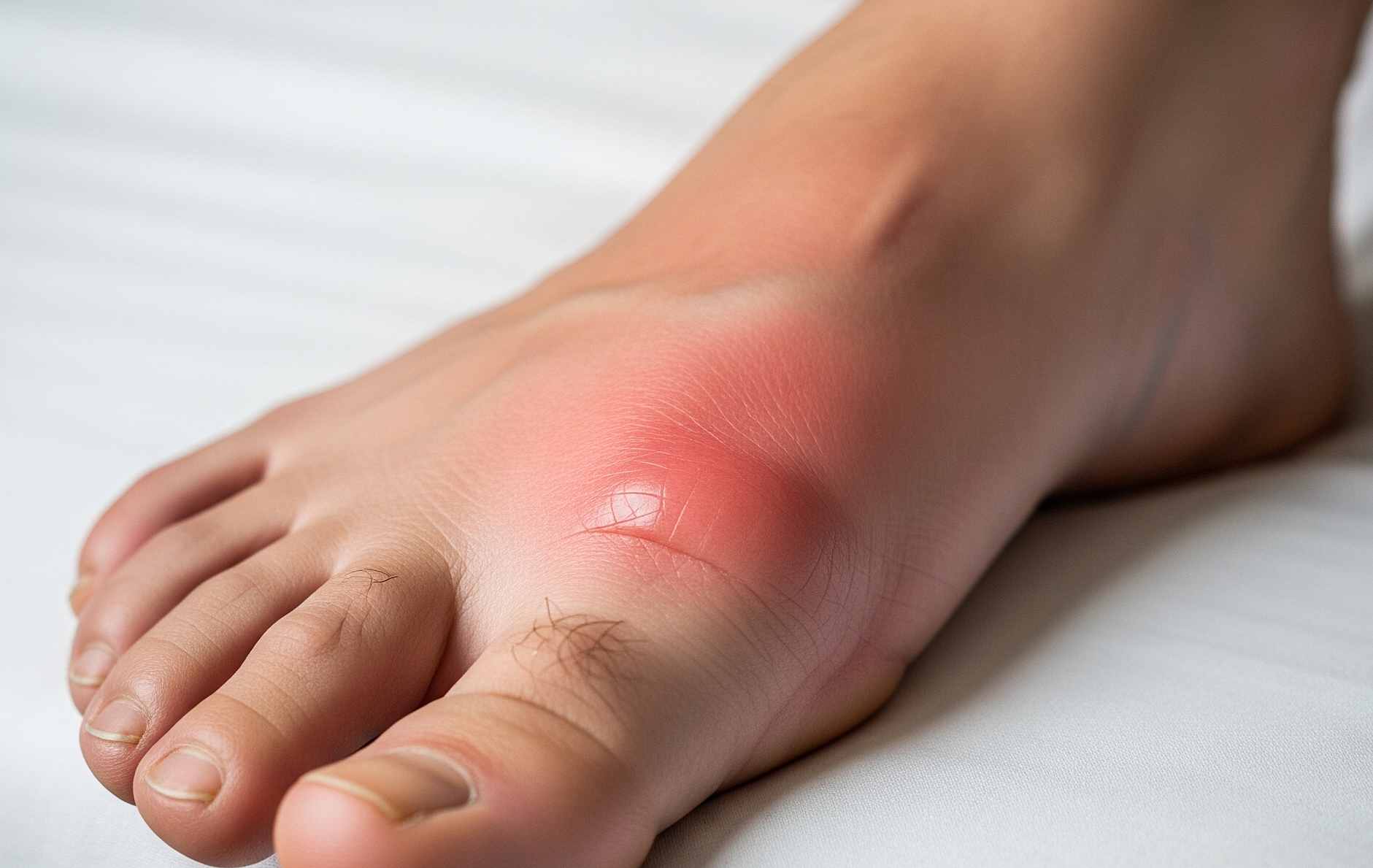Response:
Gout is a form of arthritis that develops when high levels of uric acid in the blood lead to the formation of urate crystals in the joints. Symptoms include sudden joint pain, swelling, redness, and heat in the affected area. Gout typically affects the big toe, but it can also impact other joints such as the ankles, knees, hands, and wrists. The condition can manifest acutely with short-term pain or progress to a chronic state.
While obesity doesn't directly cause gout, it's a significant risk factor. Excess body fat can disrupt metabolism, increasing uric acid production in the liver and reducing the kidneys' ability to excrete it.
 |
Gout causes sufferers pain in many joints. Image generated by AI |
Gout causes sufferers pain in many joints. Image generated by AI
Individuals with obesity tend to consume more calorie-rich, purine-rich foods like red meat and seafood. The breakdown of purines produces more uric acid. Excess body fat can also stimulate xanthine oxidase, a key enzyme in uric acid production, further increasing the risk of gout.
In obese individuals, abdominal fat reduces blood flow to the kidneys, impacting their function and diminishing their ability to excrete uric acid. This leads to a buildup of uric acid in the blood. Insulin resistance, common in overweight and obese individuals, further hinders uric acid excretion, elevating gout risk. Obesity is also associated with inflammatory factors and metabolic disorders, creating conditions for more frequent and prolonged gout attacks.
Currently, there's no definitive cure for gout. Treatment focuses on managing symptoms and stabilizing uric acid levels to prevent long-term organ damage.
You should consult an endocrinologist or diabetologist for a proper examination and personalized weight loss advice. In addition to following prescribed gout medication, maintain a healthy diet, limiting purine-rich foods and alcohol. Eat plenty of vegetables and exercise regularly to manage your weight and prevent excessive weight gain.
MSc, Dr. Hoang Thi Hong Linh
Department of Endocrinology - Diabetology
Tam Anh General Hospital, Ho Chi Minh City
| Readers can submit questions about endocrine diseases here for doctors to answer. |












